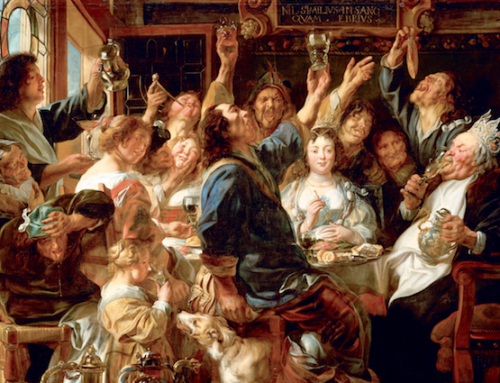Alexis de Tocqueville came to America in 1831. Though the French aristocrat came for only nine and a half months, his understanding of America and democratic peoples more broadly has never been matched.
Most imaginative conservatives have probably read Tocqueville (and may well be some of the nation’s great experts) but I can speak from experience in saying that his classic always will repay a fresh rereading. The imaginative conservative in your life could make great use of the excuse you can give them to do that reread in 2014. For those budding imaginative conservatives who have not wrestled with Tocqueville, the new year is a great time to start. For those who don’t know Tocqueville, though I am no kind of expert, I recently created a little lecture to get them started in the new year—”Gregg’s Inadequate Introduction to Tocqueville.”
Even if your imaginative conservative has her own edition of Tocqueville’s Democracy in America, there is a recent edition they need to have in their library. The Liberty Fund of Indianapolis, Indiana commissioned a team of Tocqueville scholars to produce a totally new translation that goes well beyond anything that has ever existed before.
For those who read French, the book is available in a four volume edition with facing French and English pages. This set is available in both cloth and paperback editions. For those who don’t care about Tocqueville’s original words or, like me, can’t read them anyway, there is a handsome and meaty two volume edition available in very high quality paperback. (I am using the paperback edition with students and high school teachers at the McConnell Center over the next six months. Our lecture series will feature several contributors to The Imaginative Conservative, in fact, so do your reading and stop in if you are in Kentucky or you can wait for the video releases.) What’s more, Liberty Fund has made available electronic copies of the text so that your imaginative conservative can carry it around on their laptop or e-reader as an e-book when they might not have the actual books ready at hand.
Translated by James T. Schleifer and edited by Eduardo Nolla, this edition of Democracy in America not only provides a new translation for the English reader, but reconstitutes the book itself with the edition of copious amounts of new material culled from Tocqueville’s own notes, drafts, and letters. This additional material makes the Liberty Fund edition of Democracy in America a must have for anyone who thinks they know Tocqueville’s work—or wishes to. Many of the pages in this big 1,500 page edition are more made up of Tocqueville’s discarded material than the final product he gave to the world. The reader can ignore this material or use it as they see fit. But, these notes often contain absolute gems. For instance, the editors have rescued Tocqueville musing on the fact that a democratic government can profit from allowing a party to emerge that represents “the inequality of conditions” only so that it can be destroyed as an example. Then who would challenge a government that looked so much like us and did our bidding?
How to suspect a power that emerges from our ranks, that represents us to ourselves, that acts for us and in our name, in the matter that is most in our hearts; that loves what we love, hates what we hate and strikes what we cannot reach? Won’t there be time to take precautions when it tries to turn against us the weapon that has been entrusted to it? The nation closes its eyes to that and falls asleep.
To go with this great new Liberty Fund edition, be sure to give the imaginative conservative in your life the quiet time needed to read and contemplate this important work. Some caffeinated beverage or the beverage of their choice might help, too. And, as a guide to keep them moving through the text, Sean Southard has made a useful guide available to help readers get through the two volumes in about six months at a fairly contemplative pace of about 50 pages a week.
Though written more than 175 years ago, Tocqueville’s work remains a powerful tonic that American citizens of all stripes ignore at our common peril. We are not victims of our fate but live in what Tocqueville called “a fatal circle” within which we are free to make the choices that will determine our future. He himself ended his great book with the following line which speaks to us as much today as the America of the 1830’s:
The nations of today cannot make conditions among them not be equal; but it depends on them whether equality leads them to servitude or liberty, to enlightenment or barbarism, to prosperity or misery.
It is still up to us.
Find Democracy in America and related works in our Bookstore.








Leave A Comment